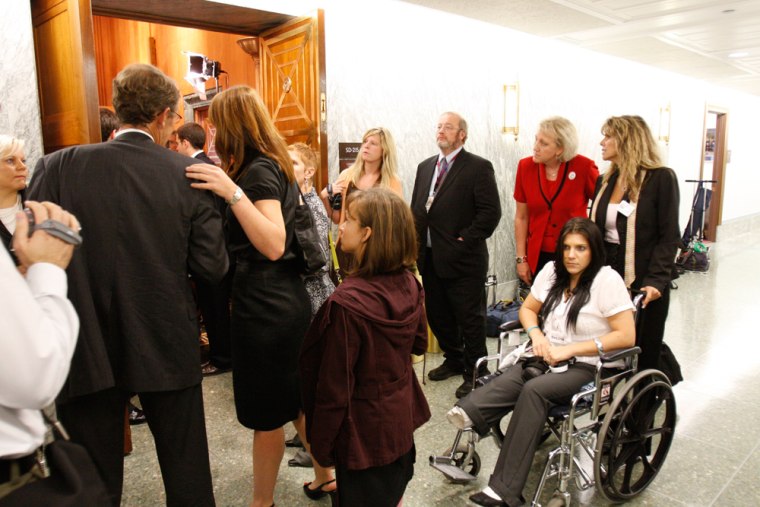On the surface, it appears that no one is happy with Sen. Max Baucus (D-Mont.) -- and that may be the best news President Obama has had in months.
Within minutes of the release of the Senate Finance Committee chairman's long-awaited health-care reform bill Wednesday, the attacks started flying. Liberal Democrats and allies, particularly labor unions, fumed. Republicans, after being courted for months, denounced the work as pure partisanship.
But behind the rhetorical fireworks was a sense that the fragile coalition of major industry leaders and interest groups central to refashioning the nation's $2.5 trillion health-care system remains intact. As they scoured the 223-page document, many of the most influential players found elements to dislike, but not necessarily reasons to kill the effort. Most enticing was the prospect of 30 million new customers.
At the White House, after the delays and drama of summer, strategists spoke finally of movement and a possible path toward success on the president's centerpiece domestic policy goal. To keep up the pressure, Obama met with three lawmakers who had warned they would not support the Baucus bill.
Sen. John D. Rockefeller IV (D-W.Va.), who is upset that Baucus did not include a public health insurance option, tempered his criticism after a private meeting with Obama, signaling that he hopes to work out a compromise.
"Nothing is clearer than the president's commitment to providing affordable and effective health care for all Americans, and he and I are united in our efforts to deliver on this promise," he said.
Lawmakers and lobbyists alike cautioned that Obama remains far from a White House signing ceremony and that perhaps the greatest danger at this point is death by a thousand legislative changes.
The goal now is to keep the legislation moving toward a House and Senate conference committee, in which the administration would have its greatest influence on the outcome.
"He is open to a variety of different approaches if it gets it out of the Finance Committee," Sen. Ron Wyden (D-Ore.) said after talking to Obama. "He also knows he's got a lot of heavy lifting to do to get it out of the Finance Committee."
At the heart of the administration's strategy -- and Wednesday's guarded optimism -- is a collection of deals intended to neutralize the interest groups that helped defeat President Bill Clinton's health-care overhaul 15 years ago. In each instance, the industry has agreed to make financial concessions in return for new customers or other protections that could have lasting effects.
Hospitals, for example, have said they would accept about $155 billion in cuts over the next decade in return for promises that they would be exempt from actions taken by a proposed commission that would pursue additional savings in the Medicare program.
The best evidence that the approach was holding was the calm emanating from organizations that have criticized House health-care bills and a version approved by the Senate health committee.
"This is the best start of any of the bills" circulating on Capitol Hill, said Neil Trautwein, a vice president of the National Retail Federation. Leaders of the Business Roundtable and the National Federation of Independent Business were also generally positive about the Finance panel's bill.
Most noteworthy, perhaps, were the organizations that held their firepower. Drugmakers and hospitals, two groups that struck early deals with the White House and Baucus, had little to say.
In virtually every instance, industries facing new fees or budget cuts would be rewarded with additional revenue from legislation that could cover 30 million more people, said Kenneth E. Thorpe, an Emory University professor and Clinton administration official. Under the Baucus bill, businesses such as hospitals, device manufacturers, drugmakers and insurers would face $93 billion in new fees over the next decade.
"They'll get much more than that in new money out of this bill," he said.
In crafting his bill, Baucus removed several ideas included in the House legislation that were particularly problematic to industry. Those included the employer mandate, a new government-sponsored insurance program and a costlier drug rebate provision.
Several trade associations were quick to note they would be affected by other proposed changes, including reductions in future Medicare spending. Many will spend the next few weeks lobbying intensively for amendments aimed at softening the blow. The medical device industry, for example, has recruited four senators to its effort to roll back a proposed $4 billion annual fee.
"There will be a lot of horse-trading, and it will not be pretty," said one White House aide who is not authorized to discuss the administration's strategy. "This is all about steps that move us forward."
Staff writer Michael D. Shear contributed to this report.
